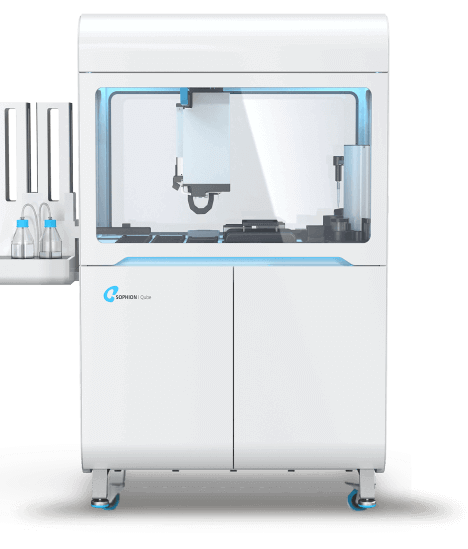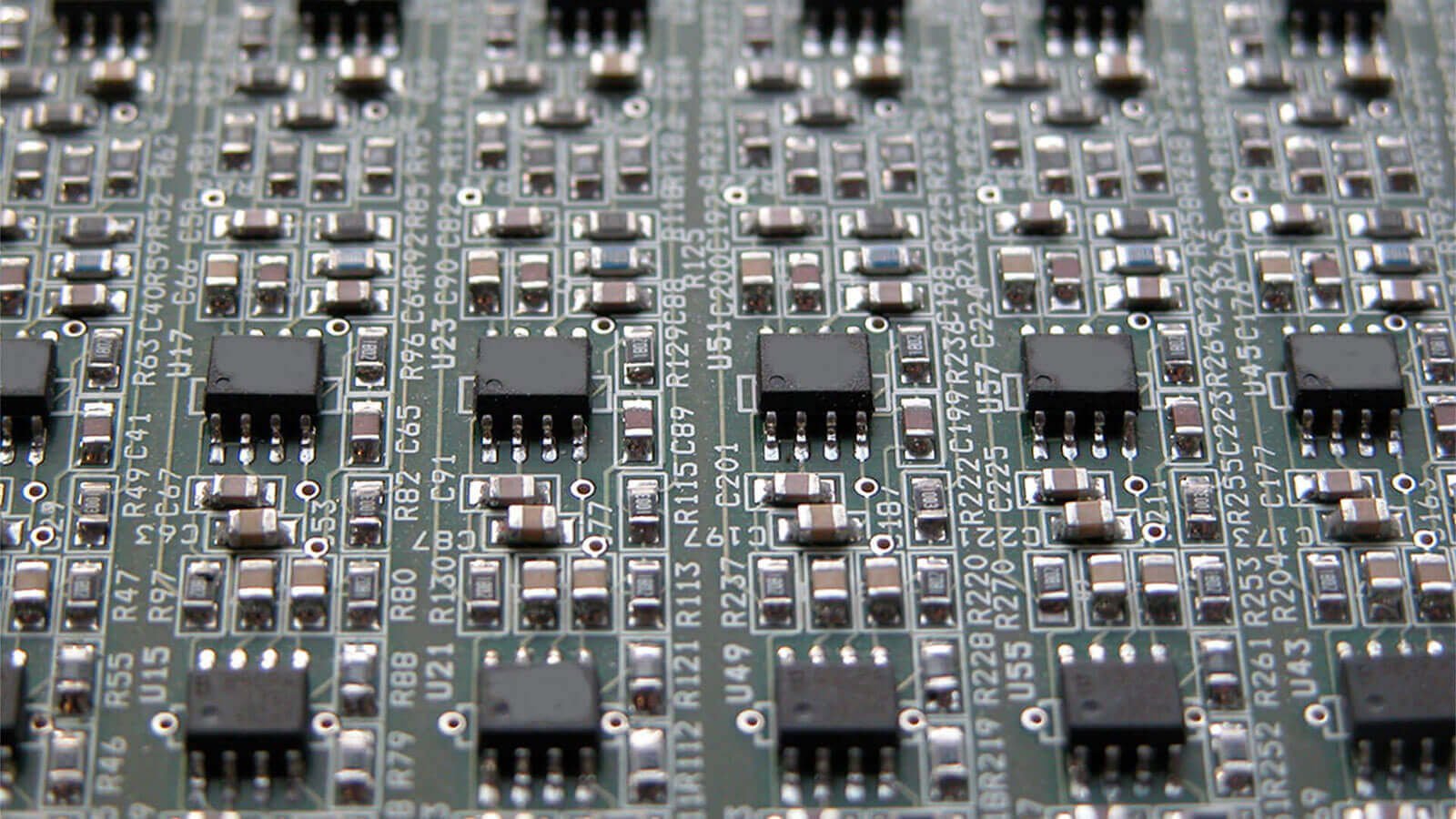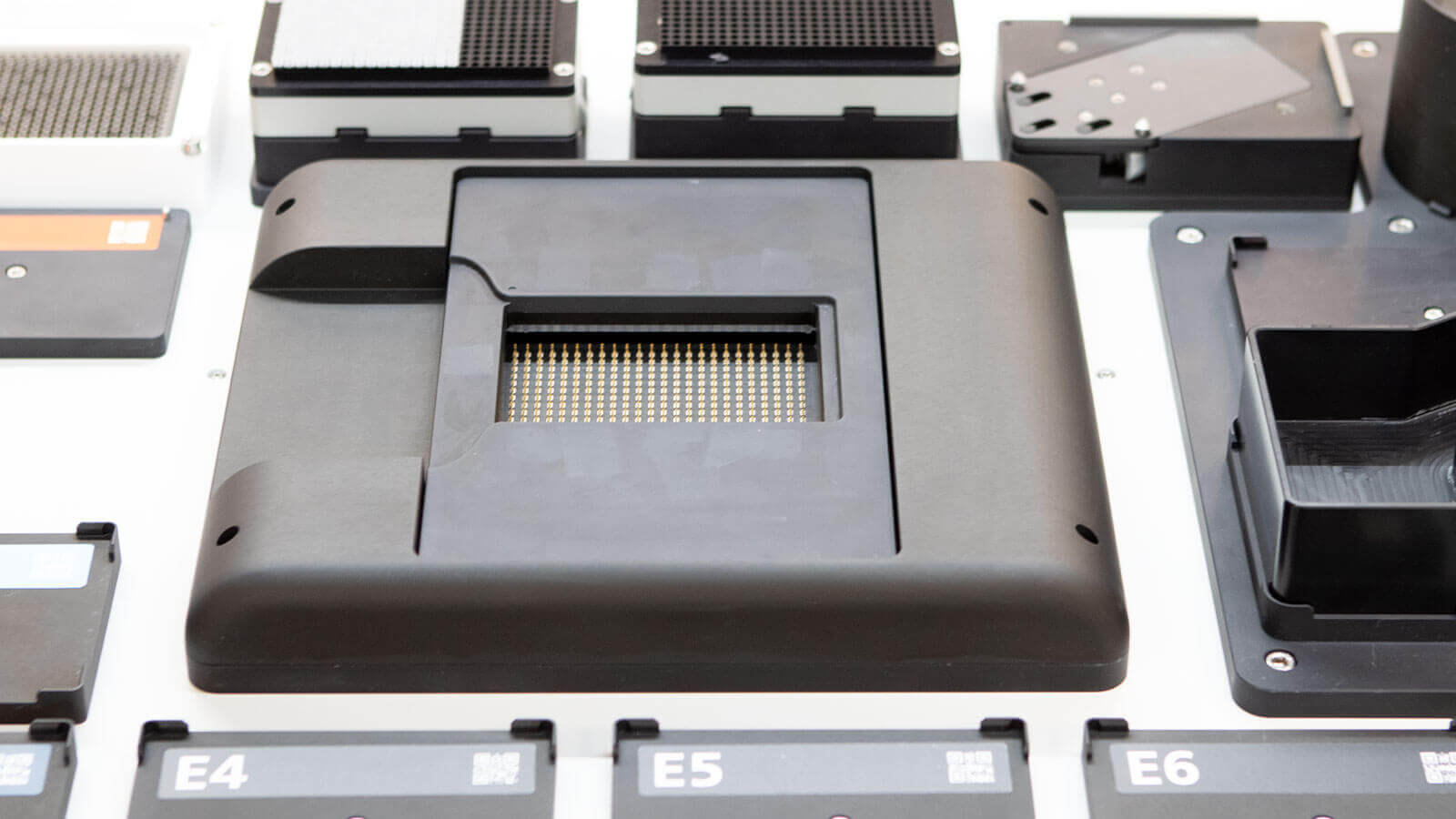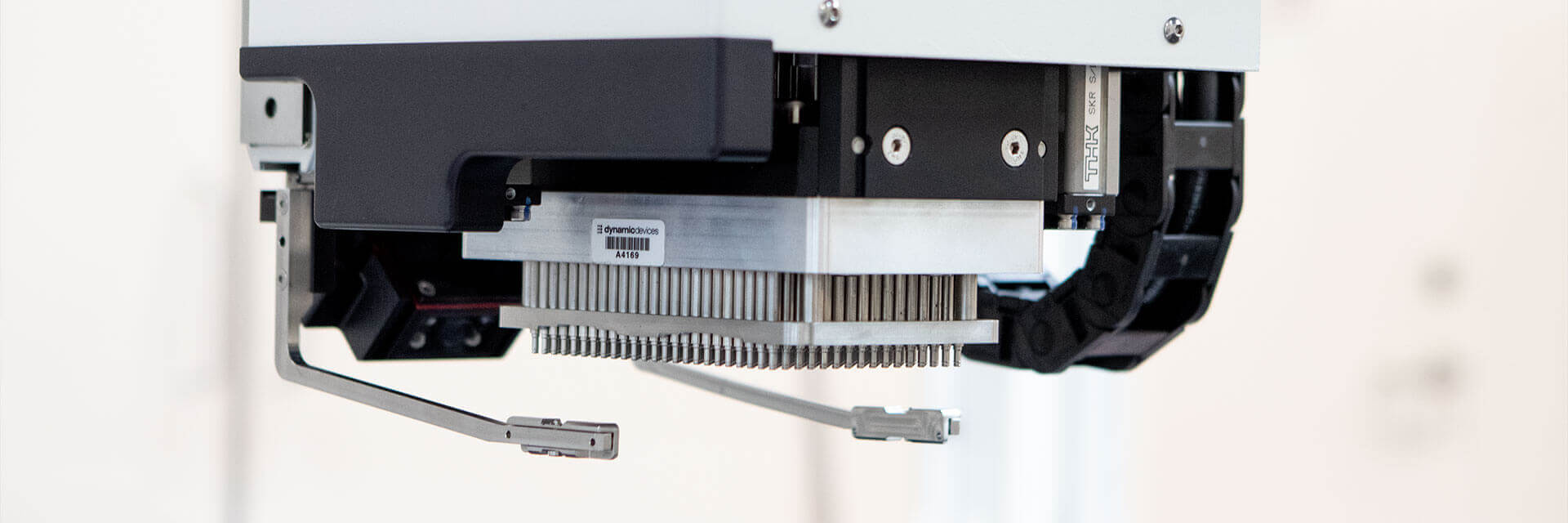Qube 384 High Throughput
The world's most advanced automated patch clamp instrument, designed to discover more
Download tech specs
Access detailed specifications, performance metrics, for Qube 384
Talk to our experts
Discuss your research needs and find the best solution with our experts
Designed to discover more
Qube 384 is a high-performance platform built on more than two decades of innovation in automated patch clamp technology. It brings together proven reliability and enhanced functionality — empowering researchers to accelerate ion channel screening, improve data consistency, and take discovery further.
- Broader research scope
- Unbiased test results
- Improved reproducibility and consistency
- Easy and flexible data analysis
- Broader research scope
- Unbiased test results
- Improved reproducibility and consistency
- Easy and flexible data analysis
The dynamic solution to ion channel research optimization
One proprietary, dynamic platform to meet your future research needs
We believe that continuous improvement is better than delayed perfection. That’s why Qube 384 is designed to evolve with your changing needs in ion channel research.
Intelligent software upgrades, part of our commitment to innovation and your service agreement with Sophion, ensure you always have access to the latest advancements.
With the ability to integrate new, critical features, Qube 384 is a future-proof investment. Built on proven, proprietary technology developed in-house by Sophion, it is designed for continuous improvement, shaped by valuable feedback from Qube users worldwide.
Let’s meet to discuss the exciting roadmap for the Qube 384 Dynamic platform.
- Ongoing software updates
- Proprietary technology prepared for feature upgrades
- Ongoing enhancements in consumable efficiency
- Easy adaption to future research needs
- Guaranteed up-to-date investment
- Ongoing software updates
- Proprietary technology prepared for feature upgrades
- Ongoing enhancements in consumable efficiency
- Easy adaption to future research needs
- Guaranteed up-to-date investment
The Qube automation package enables 8 hours of walk-away operation
With the true walk-away operation, you can efficiently utilize laboratory resources to meet demanding timelines, save valuable time, while ensuring the highest success rates for your drug discovery and ion channel research.
Unique Sophion software - simple setup and precise analysis of large datasets
Automated patch clamping rapidly produces large data sets, making efficient data handling essential. Sophion Analyzer, designed for all Sophion platforms, delivers advanced analysis of thousands of experiments at once—while preserving the rich detail typical of patch clamp data. Automated project analysis frees up valuable time for interpreting results, discussing lead profiles with chemists, and uncovering new biophysical insights.
- Simple and efficient handling of large amounts of research data
- Database ensures the original data is protected so no one can change it
- Enabled for Sophion Thor® – store and share data in the cloud
- Access your data from anywhere using the internet
- Simple and efficient handling of large amounts of research data
- Database ensures the original data is protected so no one can change it
- Enabled for Sophion Thor® – store and share data in the cloud
- Access your data from anywhere using the internet
Unique QChip technology guarantees complete liquid replacement
The QChip is designed specifically for the Qube 384 and features integrated, maintenance-free electrodes and flow channels that enable giga-ohm seals and efficient liquid handling — ensuring consistent, high-quality data recordings every time. Its microfluidic design ensures that cells are exposed only to the intended compound concentration, eliminating the risk of overshoot often seen with open-well technologies. Additionally, the short distance between each cell and its individual electrode pair allows for precise voltage clamp control.
- No risk of ‘overshoot concentrations’ — a common issue in open-well systems
- Less cell-consumption due to low volume in the QChip, only 4 μL per site
- 1 or 10 holes with standard 2 MΩ resistance (high resistance plates available)
- Partial chip runs is possible
- Stable, drift-free recordings thanks to 384 embedded, maintenance-free electrode pairs
- No risk of ‘overshoot concentrations’ — a common issue in open-well systems
- Less cell-consumption due to low volume in the QChip, only 4 μL per site
- 1 or 10 holes with standard 2 MΩ resistance (high resistance plates available)
- Partial chip runs is possible
- Stable, drift-free recordings thanks to 384 embedded, maintenance-free electrode pairs
Qube 384 high-fidelity amplifiers
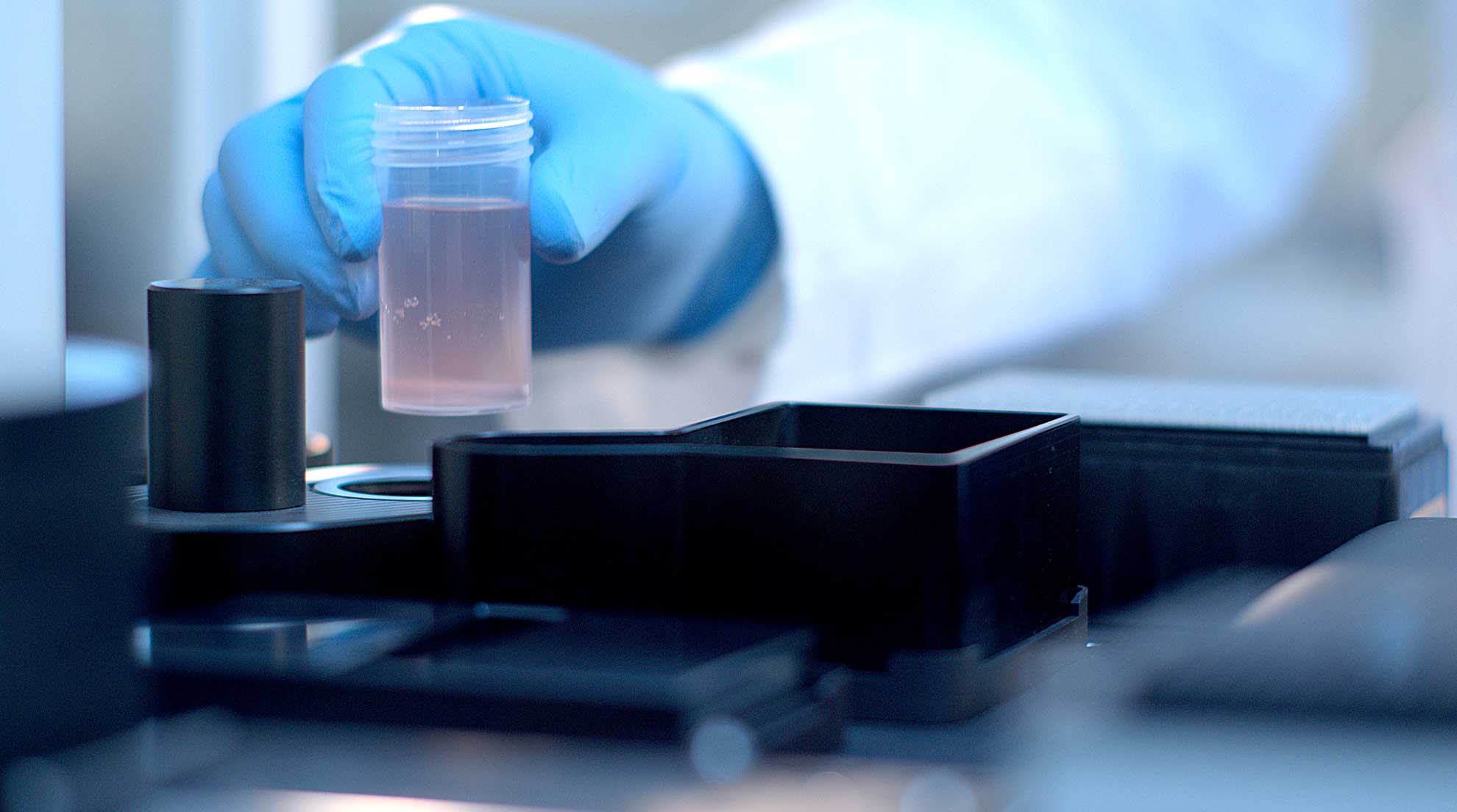
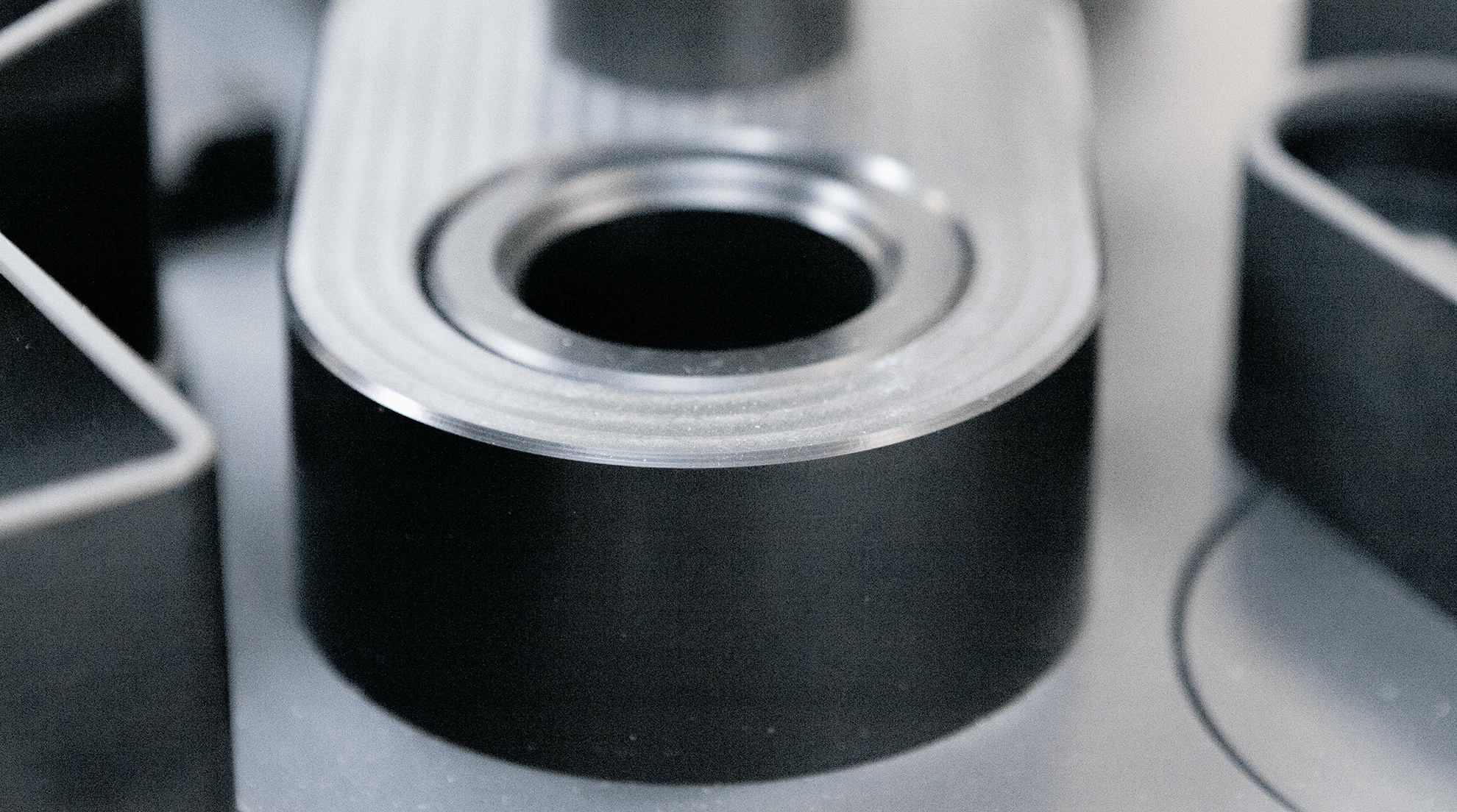
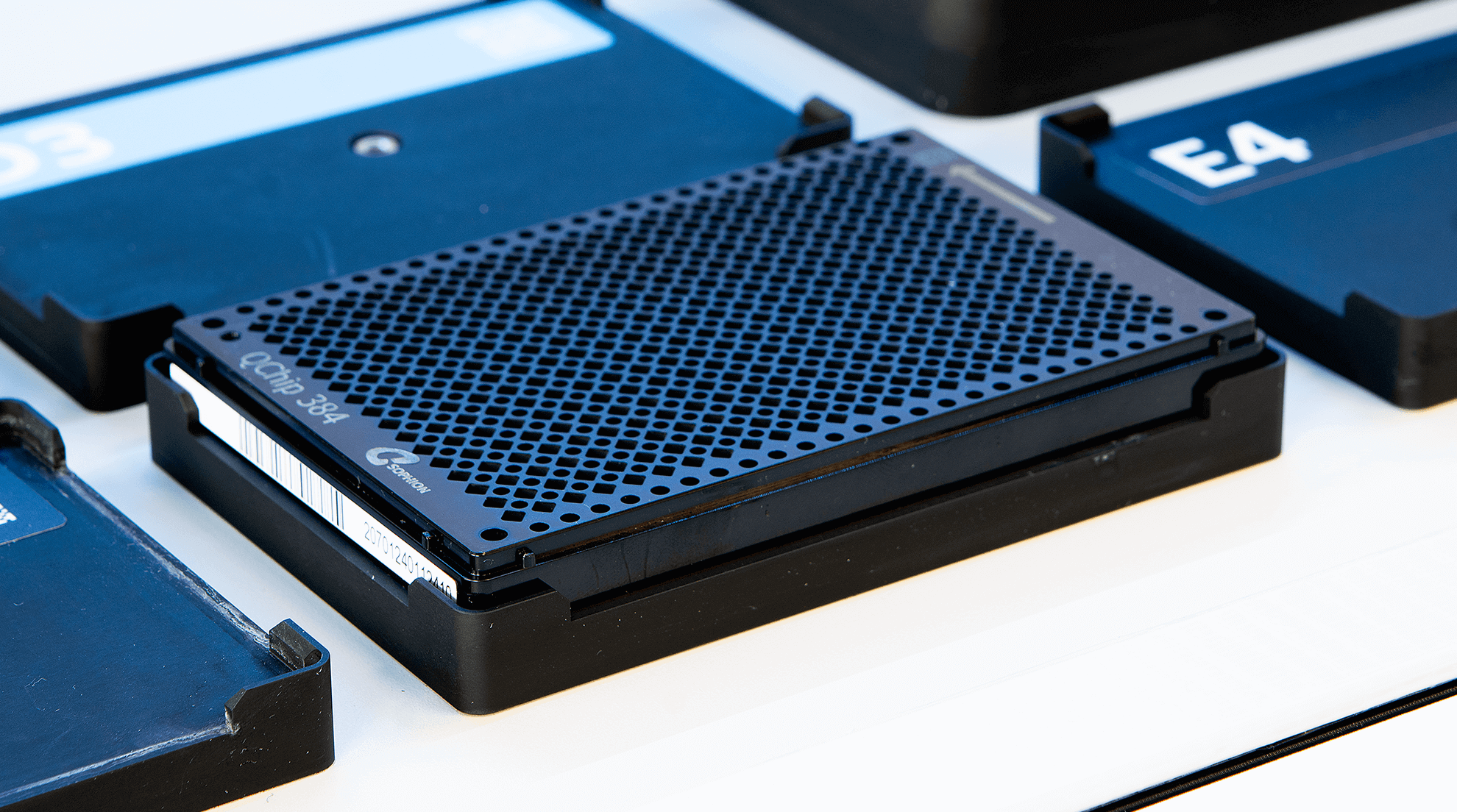
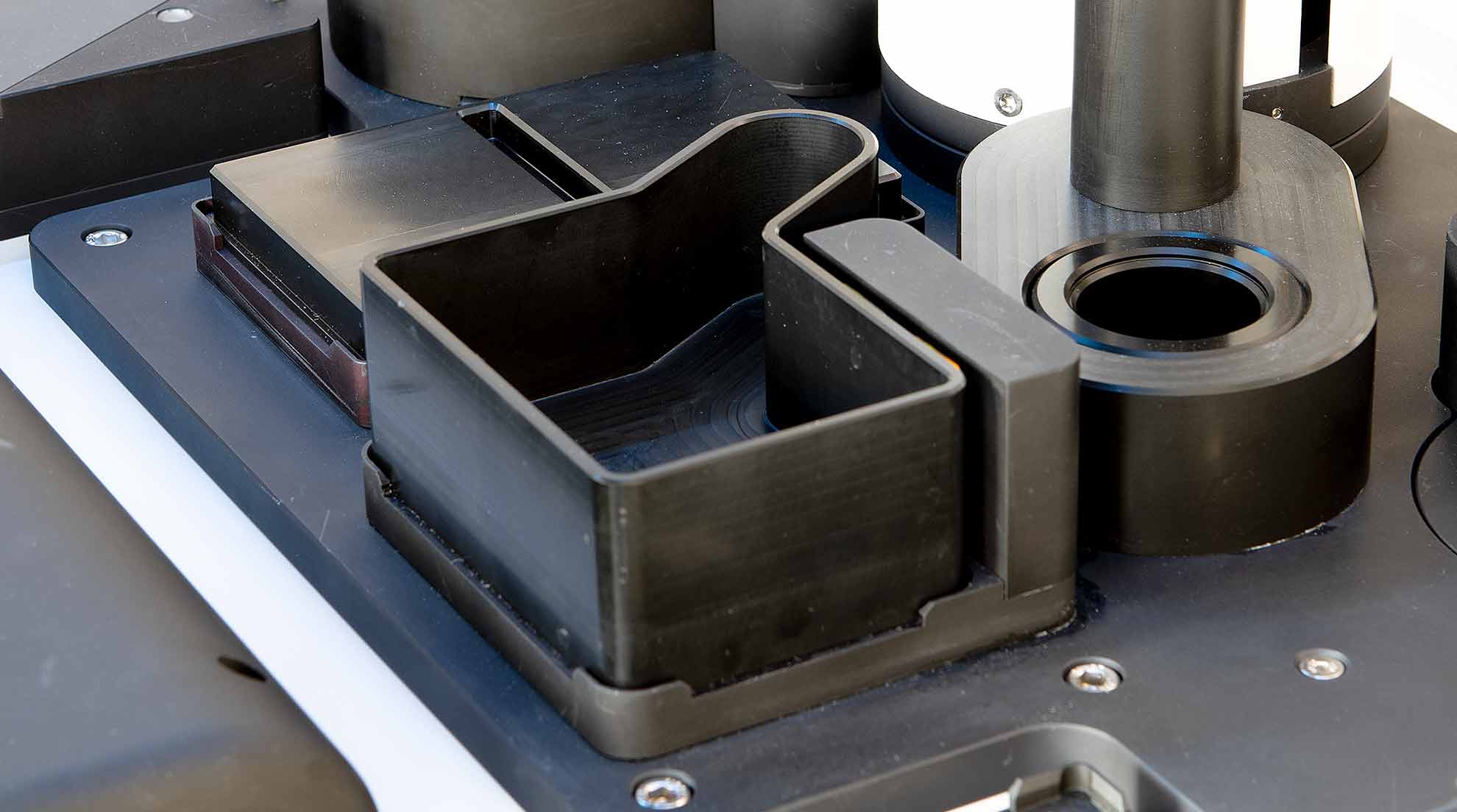
The sum of all improvements makes the Qube 384 our most versatile and user-friendly instrument yet
We’ve taken automated patch clamping a step further, virtually eliminating the risk of human error. Assembly and preparation are foolproof – every component fits logically into place. We believe automation should simplify, not complicate. That’s why we’ve designed our system with the user in mind, ensuring effortless adaptation so researchers can dedicate their time to groundbreaking ion channel studies. Every day, the Qube 384 will make your work easier and more efficient.
The Qube liquid handling unit is designed for ultra precision and reliability for years to come
The integrated liquid handler offers 1,536-well precision, force-based loading, a barcode reader, linear motors, and a gripper—delivering unmatched accuracy, speed, and full traceability.
- No desensitization and reduced agonist exposure due to stacking in tips
- Ultra-precise concentration control, due to separate inlets and outlets on QChip connected by microfluidic channels
- Pipetting robot available for compound plate preparation
- Exchange of IC during experiment with as little as 22 µL per column
- No desensitization and reduced agonist exposure due to stacking in tips
- Ultra-precise concentration control, due to separate inlets and outlets on QChip connected by microfluidic channels
- Pipetting robot available for compound plate preparation
- Exchange of IC during experiment with as little as 22 µL per column
The Qube cell preparation unit is intelligent and fully automated
The hallmark of the Qube automation is cell handling, which has been designed for >8 hours unattended operation. With the true walk-away operation, you can efficiently utilize laboratory resources to meet demanding timelines, save valuable time, while ensuring the highest success rates for your drug discovery and ion channel research. With the ability to use a low volume cell transfer plate and partial QChip execution, extremely low cell consumption is attainable, e.g. for iPSC and primary cell preparations.
- Prepares and delivers fresh cells precisely when required
- Simplifies workflow and saves time and resources
- Extremely low cell consumption
- Prepares and delivers fresh cells precisely when required
- Simplifies workflow and saves time and resources
- Extremely low cell consumption
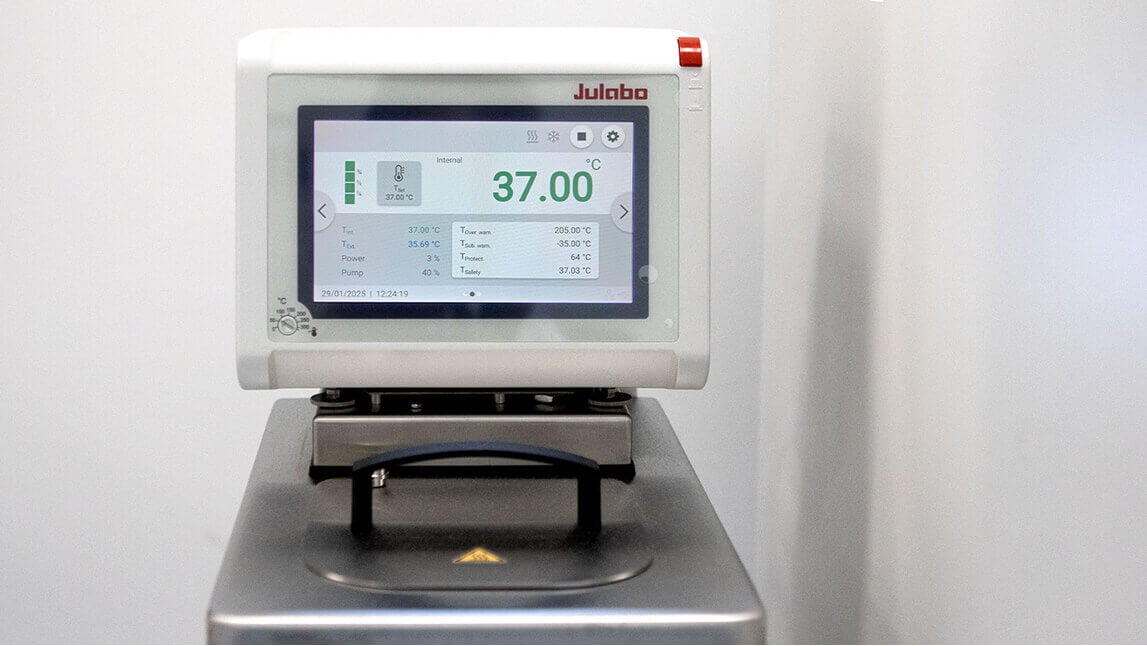
The Qube temperature control system delivers precise and consistent regulations
Sophion’s temperature control module enables precise, stable experiment conditions by both heating and cooling within a 10–42°C range, with ±0.5°C accuracy.
Temperature is regulated via circulating water in the bed-of-nails (BON), with feedback taken directly from beneath the measurement sites. This close-proximity control minimizes external temperature influence and ensures high reproducibility—even in fluctuating lab environments.
Integrating liquid flow into the BON is a complex engineering task, but essential for achieving fast, localized thermal regulation.
- Highly accurate temperature regulation
- Higher repeatability and reproducibility
- Perform experiments at controlled physiological temperatures
- Highly accurate temperature regulation
- Higher repeatability and reproducibility
- Perform experiments at controlled physiological temperatures
